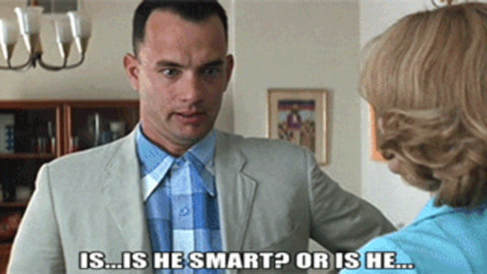 Originally published as Team Dynamics: When Smart People Act Stupid In Business, January 24, 2017 in Young, Fabulous and Self Employed (YFS). By Jon Isaacson Intelligence does not always translate into savvy — especially when it relates to interpersonal dynamics within a team. As a leader or manager (or whatever crafty title you’ve come up with to make corralling employees sound less bureaucratic), understanding and succeeding with humans will always be an evolving process. Too often, smart people act in very stupid ways when dealing with others. As noted in his book, Organizational Physics: The Science of Growing a Business, Lex Sisney outlines that the principles of “survival of the fittest” (a phrase that originated from Darwinian theory) was not about being the strongest or the smartest, but about being the best able to adapt to a given environment. Adaptation at its most primal level is about survival. We observe in nature and in business that it is not always the smartest or strongest or the fittest for the role that rise to the highest levels of leadership. There is no executive level leader who has not risen in the ranks without earning it in some way. We may disagree with their qualifications, but someone at some level who had authority found them fit for the role. If you live your life frustrated by who is in power you will always be in turmoil. To rail against the system in a manner that changes nothing and only makes you bitter is a recipe for an aneurysm. If you don’t understand by now, power is not about being the strongest, smartest or even the most qualified. If you think this – for as smart as you are, you sure are stupid. Power dynamics in business Continuing with the things observed in nature that apply to business, let’s move from the macro observations of power dynamics into the individual level of dealing with those people in your immediate sphere of influence. If you know someone that you consistently butt heads with and find yourself frustrated with how they interpret and act upon conversations, you must understand that a leopard doesn’t change its spots. Often the schism is related to communication which requires listening, interpretation and implementation. One’s ability to understand is impacted by perspective and it is a statistical improbability that any two persons share 100% perspective alignment so there will always be a level of variance between how two people interpret a situation or conversation. You will not wake up tomorrow and somehow make a 180 degree turn in how you see the world; so don’t expect others to either. Most interpersonal friction is related to an expectation that the other party can see things in the same way and will arrive at the same conclusion. If you expect this – for as smart as you are, you sure are stupid. So, what do we do then? Are you giving away your power?First, understand that you are a leopard and that everyone else is a leopard as well. A leopard will not change it’s spots. At a base level individuals are not going to drastically change from who they are, how they see the world and how they respond to their environment. Understanding yourself as a leopard and those you interact with as leopards will not solve your conflicts, but it will at least provide some perspective on the expectations you place on those relationships. Secondly, survival requires adaptation. If you are in a truly toxic environment the smartest thing to do is to find a new environment. If you are in an environment that has it’s ups and downs, but overall is an area that you feel you can make a positive impact in, then you will need to learn to adapt. Learning the language, culture and dynamics of your chosen environment is essential to your ability to thrive in any situation. No one takes your power, no one can squeeze the life out of you, you choose how you allow people and situations to impact you. Confidently be your leopard self, stop being so functionally stupid and start adapting to your environment. Thirdly, there is value in utilizing some of the many frameworks available for understanding and gaining perspective on those around you. Whether you are experiencing conflict within your team or not, investing in personality profiles and related tools can help create pathways for common language in working together. As mentioned above, in Organizational Physics, Lex Sisney proposes that people are producers, stabilizers, innovators and/or unifiers (PSIU). Understanding where your leopard lines up in the characteristics of PSIU will help you better recognize your motivations, needs and sources of conflict as well as those characteristics in others. There is no simple fix to human interactions, leopards have been roaring, clawing and biting other leopards for ages. If you aren’t doing something intentional to better the situation – for as smart as you are, you sure are stupid.
0 Comments
Leave a Reply. |
AuthorThoughts on personal and professional development. Jon Isaacson, The Intentional Restorer, is a contractor, author, and host of The DYOJO Podcast. The goal of The DYOJO is to help growth-minded restoration professionals shorten their DANG learning curve for personal and professional development. You can watch The DYOJO Podcast on YouTube on Thursdays or listen on your favorite podcast platform.
Archives
March 2023
Categories
All
<script type="text/javascript" src="//downloads.mailchimp.com/js/signup-forms/popup/unique-methods/embed.js" data-dojo-config="usePlainJson: true, isDebug: false"></script><script type="text/javascript">window.dojoRequire(["mojo/signup-forms/Loader"], function(L) { L.start({"baseUrl":"mc.us5.list-manage.com","uuid":"b9016446bd3c6a9f0bd835d4e","lid":"83282ffb9e","uniqueMethods":true}) })</script>
|
Jon Isaacson |
Connect. Collaborate. Conquer.
© COPYRIGHT 2015. ALL RIGHTS RESERVED.
|



 RSS Feed
RSS Feed